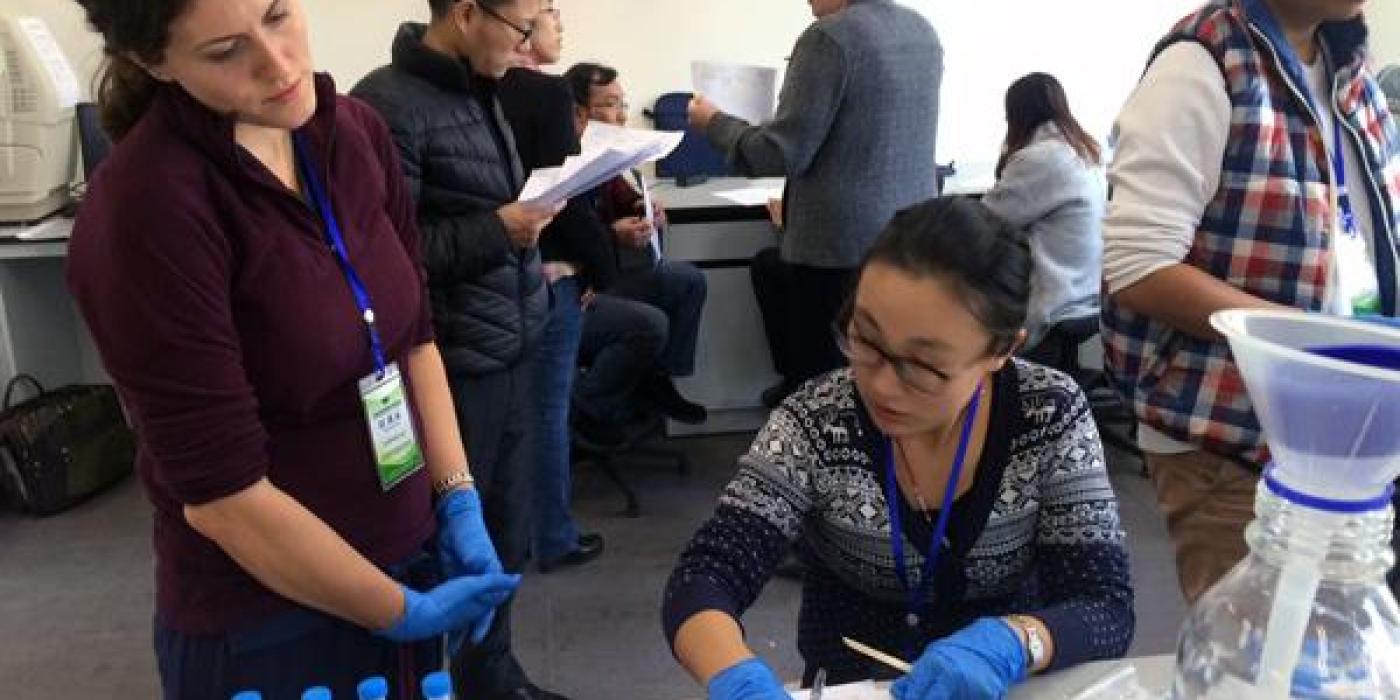Giant Panda Workshop in China
This update was written by Dr. Copper Aitken-Palmer, chief veterinarian at the Smithsonian Conservation Biology Institute (SCBI) and giant panda scientist
Representatives from the Smithsonian Conservation Biology Institute helped lead a Giant Panda Laboratory Diagnostic International Exchange Training workshop with staff from the China Conservation & Research Centre for the Giant Panda (CCRCGP) in November. The workshop was the third and final veterinary training workshop conducted over the past year at the Dujiangyan Panda Base.
These workshops have trained veterinary staff from zoos and wild animal parks all over China, empowering them with new veterinary skills so they can better care for the animals they encounter. Many of these individuals care for sick giant pandas at zoos and breeding centers, but several also care for giant pandas rescued from the wild or pandas that will soon be released into the wild for the first time.
Our last workshop focused on training veterinary staff in hematology, blood chemistry analytic assessment, urinalysis, fecal ova evaluation and reference interval development. Additionally, to ensure data integrity, we are using the Quality Assurance Toolkit, the highest global standard to ensure quality laboratory practices, developed by Dr. Davies of the University of Minnesota.
Now that the giant panda population in human care is stable and rapidly rising, understanding giant panda health and disease susceptibility is the highest priority. The Department of Conservation Medicine at SCBI is committed to understanding giant panda health and disease while also elevating the level of veterinary medicine conducted for all endangered species.
We teamed up with educational experts from Western University and University of Minnesota to evaluate the efficacy of cross-cultural veterinary education. This was especially exciting because the Smithsonian has been conducting training workshops for decades but has yet to use science to evaluate the effectiveness of those educational methods. Due to the power of science, we've decided to collect data to see if what we are doing works or if we need to change the approach when building veterinary capacity in the zoo medicine field.
Training efforts like this workshop have been part of a global effort to elevate the veterinary medicine available for giant pandas and zoo animals across China. The workshops have been a huge collaborative effort by the Smithsonian's National Zoo, San Diego Zoo Global, Hong Kong Ocean Park, and the China Conservation & Research Centre for the Giant Panda. All workshops have been funded by competitive grants from Hong Kong Ocean Park Conservation Foundation and Ford Motor Company Fund.
Related Species:



